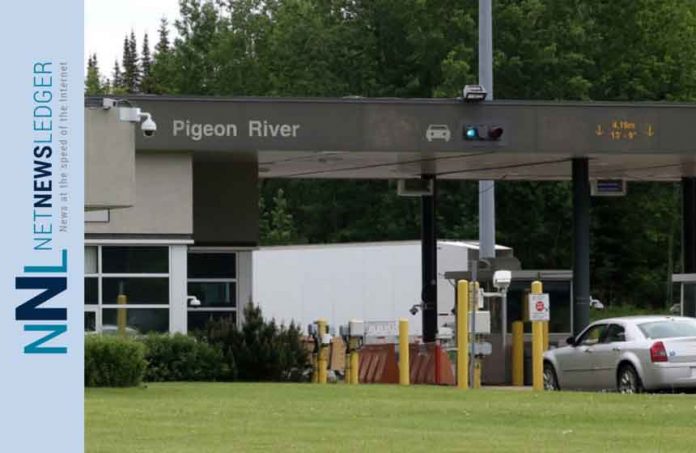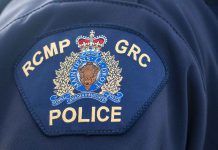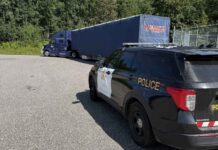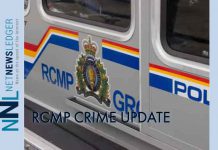THUNDER BAY – NEWS – As the Labour Day long weekend approaches, the Canada Border Services Agency (CBSA) is gearing up for an expected surge in border crossings. This annual holiday marks the unofficial end of summer, drawing international students, returning residents, and vacationers alike to Canada’s entry points. The CBSA is on high alert to maintain safety and security while facilitating legitimate travel and trade across the nation.
Record-Breaking Vigilance
In 2022, CBSA achieved a remarkable feat, welcoming over 60 million travellers while successfully intercepting more than 1,100 firearms and 24,400 prohibited weapons, thereby safeguarding Canadian streets. Additionally, the agency seized an astonishing 41,000 kilograms of illegal drugs. Notably, during the Canada Day long weekend, CBSA officers managed to welcome over one million travellers while keeping wait times to a minimum.
Strategic Planning for Peak Periods
The CBSA invests substantial effort in meticulous planning and preparation for peak periods, particularly during holiday long weekends and the bustling summer months. This includes closely monitoring traveler volumes and implementing measures to minimize border wait times at various entry points, including international airports, all without compromising safety and security.
Tips for Smooth Border Crossings
To ensure a seamless and hassle-free border crossing experience, the CBSA offers the following tips:
1. Plan Ahead and Check Wait Times
- Travellers are advised to plan ahead and monitor border wait times on the CBSA’s official website. Crossing during non-peak hours, such as early mornings, is encouraged, and avoiding the Monday of the long weekend is suggested for those seeking shorter wait times.
2. Verify Hours of Operation
- To find out the hours of operation for specific ports of entry, consult the official CBSA Directory of Offices and Services. If using GPS navigation apps, consider exploring various route options for the quickest and shortest paths.
3. Expedite Entry with Advance Declaration
- Travellers arriving at select international airports, including Toronto, Vancouver, Montreal, Winnipeg, Halifax, Québec City, Ottawa, Billy Bishop, Calgary, and Edmonton, can speed up the customs and immigration process by using Advance Declaration. This option grants access to express lanes, ensuring quicker processing.
4. Keep Travel Documents Handy
- Whether traveling by land, air, or water, having travel documents readily available expedites the entry process.
5. Traveling with Children
- Accompanying adults traveling with children should carry a consent letter authorizing their travel, especially when sharing custody or not being the child’s parent or legal guardian. Such precautions are in place to ensure child safety.
6. Know Your Exemption Limits
- Returning residents making purchases outside of Canada should be aware of their personal exemption limits. The CBSA duty and taxes estimator can assist in calculating owed amounts.
7. Cannabis Remains Prohibited
- Importing cannabis in any form, including THC or CBD oils, without proper Health Canada authorization remains a serious criminal offence, despite its legalization in Canada. A medical prescription from a doctor does not serve as Health Canada authorization.
8. Declare All Goods
- All travellers must declare their goods upon entering Canada. For returning residents, keeping receipts for items purchased or received abroad is essential. While traveling with firearms is discouraged, those who choose to do so should refer to the CBSA website for regulations on importing such items and other restricted and prohibited goods.
9. Boaters’ Responsibilities
- Boaters planning to navigate Canadian waters or enter Canada by boat should review reporting requirements for private boaters before making travel plans. Reporting to the CBSA upon entry is mandatory for all travellers arriving by boat.
10. Declare Foods, Plants, and Animals – Consult the Canadian Food Inspection Agency’s Automated Import Reference System (AIRS) before bringing food, plant, or animal products into Canada to ensure compliance with regulations.
11. Poultry Product Restrictions – Be aware of conditions and restrictions on live birds, bird products, and by-products imported from U.S. states affected by Highly Pathogenic Avian Influenza. Stay updated on the latest information before bringing these products into Canada.
12. Seek Guidance from CBSA Officers – When in doubt, travellers are encouraged to ask CBSA officers for assistance. Being open and honest with officers can save time and prevent misunderstandings.
For additional information and inquiries, visit the CBSA website or contact them at 1-800-461-9999.







